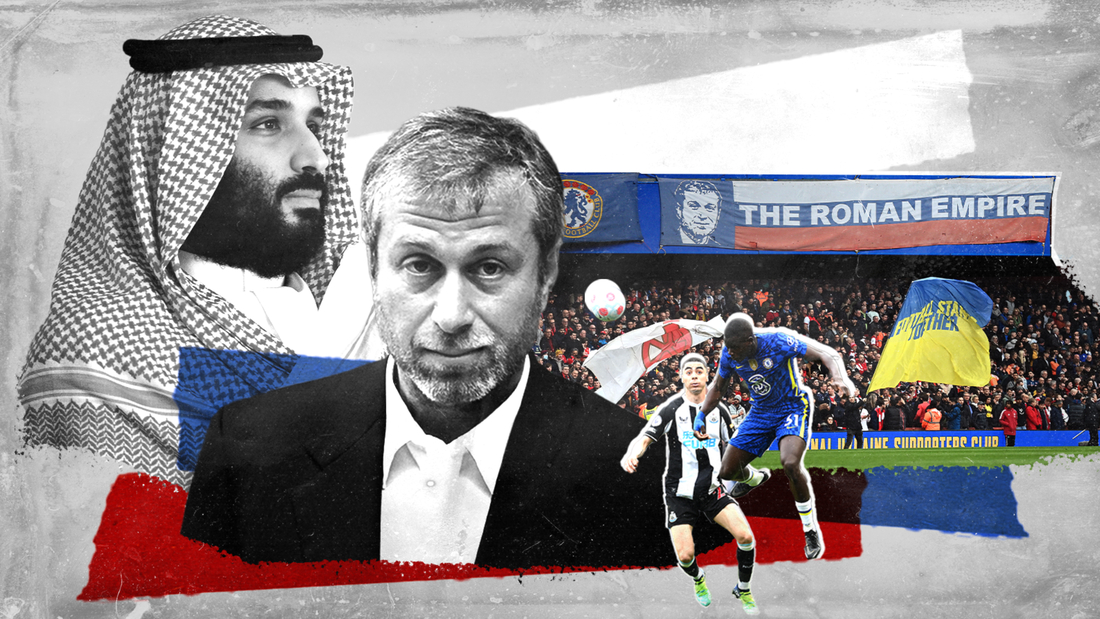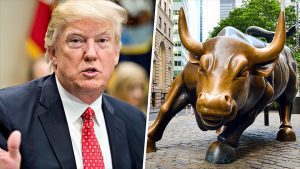
Premier League matches might have huge global appeal and its broadcast deals are worth billions of dollars, but right now the organization finds itself at the eye of a moral, ethical, and political storm.
The PIF — which has an 80% stake in the club as part of a three-party consortium — is a sovereign wealth fund chaired by Mohammed bin Salman, the Crown Prince of Saudi Arabia and the man who a US intelligence report named as responsible for approving the operation that led to the 2018 murder of journalist Jamal Khashoggi. Bin Salman has denied involvement in Khashoggi’s murder.
The day before the match between Chelsea and Newcastle, Saudi Arabia executed 81 men in the biggest mass execution in decades. Rights groups have criticized the country for executing people who were minors at the time of the offenses for which they were convicted.
Geopolitical issues
Earlier in March, British businesswoman Amanda Staveley, who played a key role in the consortium’s acquisition of Newcastle, said it wasn’t “particularly fair” that Abramovich had been forced to sell Chelsea as a result of Russia’s invasion of Ukraine.
“I’m sad someone is going to have a football club taken away because of a link they may have with someone,” Staveley, who owns a minority stake in Newcastle, was quoted as saying at the Financial Times’ Business of Football Summit in London, according to the FT.
“I don’t think that’s particularly fair to be honest, but we do have to hold all of our relationships to account. We’ll always have geopolitical issues, this world is never not going to have problems,” she added.
The sanctioning of Abramovich means Chelsea must find answers — and quickly — to an array of questions: how to finish the season, how to ensure a smooth sale to a new owner, and, fundamentally, how to ensure Chelsea Football Club can continue to operate next season.
But Chelsea’s current predicament also raises uncomfortable oversight questions for the Premier League and the UK government regarding an approach that has often been described as “light-touch regulation.”
Death and destruction in Ukraine ultimately triggered Abramovich’s sanctioning, yet Chelsea’s owner did not suddenly become “close to Putin,” as the UK government alleged in its announcement of sanctions against him, in the few weeks before or since the invasion.
“He [Abramovich] is one of the few oligarchs from the 1990s to maintain prominence under Putin,” the UK government said in a statement following the sanctions announcement.
Last month, British lawmaker Chris Bryant cited a leaked 2019 UK Home Office document that flagged concerns Abramovich had “links to the Russian state and his public association with corrupt activity and practices,” the MP said in Parliament.
Abramovich’s representative did not respond to CNN’s request for comment regarding the sanctions.
Premier League’s Owners’ and Directors’ Test
Over 30 spectacularly lucrative years, the Premier League built its multi-billion-dollar industry on a process of self-regulation, with the UK government content to take a non-interventionist approach as it basked in the success of a globally attractive business.
Russia’s invasion of Ukraine and the horror that has subsequently unfolded may be changing all that.
Suddenly, urgent questions are being asked about whether the vetting of new owners should take into consideration the issue of human rights as the UK government finds itself overseeing the sale of one of the country’s biggest teams.
The Premier League’s Owners’ and Directors’ Test lays out conditions that would bar prospective individuals from owning a club, notably prior criminal convictions, bankruptcy or insolvency, and bans from sporting bodies.
Prior criminal convictions, bankruptcy or insolvency, and bans from sporting bodies didn’t apply to Abramovich or bin Salman, though following the imposition of sanctions by the UK government, the Premier League Board did disqualify the Russian oligarch as a director of Chelsea Football Club on March 12.
One clause stipulates any individual could be disqualified “in respect of any offense involving any act which could reasonably be considered to be dishonest,” whether committed in or outside the UK and regardless of whether it resulted in a conviction.
Football accountancy specialist Kieran Maguire told CNN that the test presents a low bar to prospective owners and says that is very much by design.
“It’s a relatively low hurdle,” Maguire told CNN. “And part of the reason for that is because the rules are determined by the owners themselves.
“The last thing they want to do — given most will eventually be looking for an exit route — is make the criteria for selling too difficult. This would reduce the pool for buyers, which reduces the price.”
Asked for comment, the Premier League pointed CNN towards the evidence of its chief policy officer Helen McNamara at Tuesday’s parliamentary committee hearing.
“This is an extraordinary, complex and unprecedented situation. It’s pretty new to all of us,” said McNamara, referring to the issue of Chelsea and Abramovich.
“We already have an independent panel, chaired by a QC, who oversee our sanctioning regime and we are in the process of putting together an independent panel that will support the Premier League board and scrutinizing their decision making on the Owners’ and Directors’ Test.”
According to Maguire, the test primarily is designed to ask whether a potential owner has unspent criminal convictions and whether they have the resources to fund the club.
To change any aspect of the test, 14 or more of the 20 Premier League clubs would have to vote in favour.
Integrity
That visa issue came at a time of diplomatic tensions between London and Moscow after the poisoning of a former Russian spy with a nerve agent in the English city of Salisbury in March. Nonetheless Abramovich continued to own Chelsea.
Lawmaker Julian Knight, who chaired Tuesday’s Department for Digital, Culture, Media and meeting, told Sports Minister Nigel Huddleston that the Owners’ and Directors’ Test “wouldn’t have stopped the Saudi takeover, it wouldn’t have stopped Roman Abramovich taking over.”
“It seems to be … if you have enough money, therefore you can buy a football club. Is that really the right way to go or should there be a more stricter outlook in terms of the integrity of the ownership of a football club?”
Huddleston replied: “What I can say is that we do recognise there is a need for further refinement and more robust Owners and Directors Test and of course the integrity element of that is something that is being pushed.”
“We recognize — and the Premier League recognize — that the Owners’ and Directors’ Test needs further work, it needs to be a more robust … but it’s really important that we continue to make sure we have a robust and very successful football ecosystem in the UK.
“The Premier League is a major global success story, it’s an outstanding export earner for the UK and we welcome investment.”
Asked if he welcomed the Newcastle takeover, Huddleston replied: “Saudi Arabia is an important partner of the UK across multiple areas including investment, intelligence, culture and other elements.
“That purchase was a commercial decision which the government did not take part in. That was within the law and within the restriction of the Owners’ and Directors’ Test of the Premier League.”
Human rights clause
Former Premier League executive chairman Richard Scudamore recently said that the UK government “actively” encourages investment by the Saudi sovereign wealth funds.”
“I’m not too sure that the Premier League should take any sort of stance that is not, in some ways, consistent with UK law and governance,” Scudamore told the University of Cambridge’s Varsity website.
Maguire believes it is “feasible” that a human rights clause could be added to the criteria, citing recent comments made by the Premier League’s current CEO Richard Masters.
Earlier this month, Masters told the FT’s Business of Football summit that the league had held discussions with Amnesty International about including a human rights section to its Owners’ and Directors’ Test.
Conceding that the test had “been under a lot of scrutiny for the last 12 months,” Masters said the Premier League is seeking “external contributions” to amend the test. That comes after UK lawmaker Tracey Crouch’s review of football called for the reform of the test and for it to come under the control of an independent regulator.
Referencing both the test’s pending review and discussions of an independent regulator, Huddleston remarked that English football was at a “turning point.”
“There has been a bit of a wake up call here,” Huddleston said, “particularly as it relates to Russian investment … The mood’s changing — I think we are at the cusp of quite significant change in sport.”
Envy of other Europeaan leagues
The change in mood was echoed by leading pundit Gary Neville, who in recent years has been vocal about a range of issues facing the game, notably the idea of a European Super League.
The former Manchester United and England defender described recent events at Chelsea as “a massive wake up call,” both for himself and English football.
“They’ll be sat there very nervously thinking, ‘We don’t want to set a precedent here — what do we do?'”
“Football is absolutely coming under huge scrutiny,” Neville added.
Meanwhile, the Premier League’s bottom line couldn’t look healthier.
“It’s indicative of the league’s success and appeal to a global audience,” Maguire said of the deal. “The Premier League is the envy of all the other leagues in Europe.”

